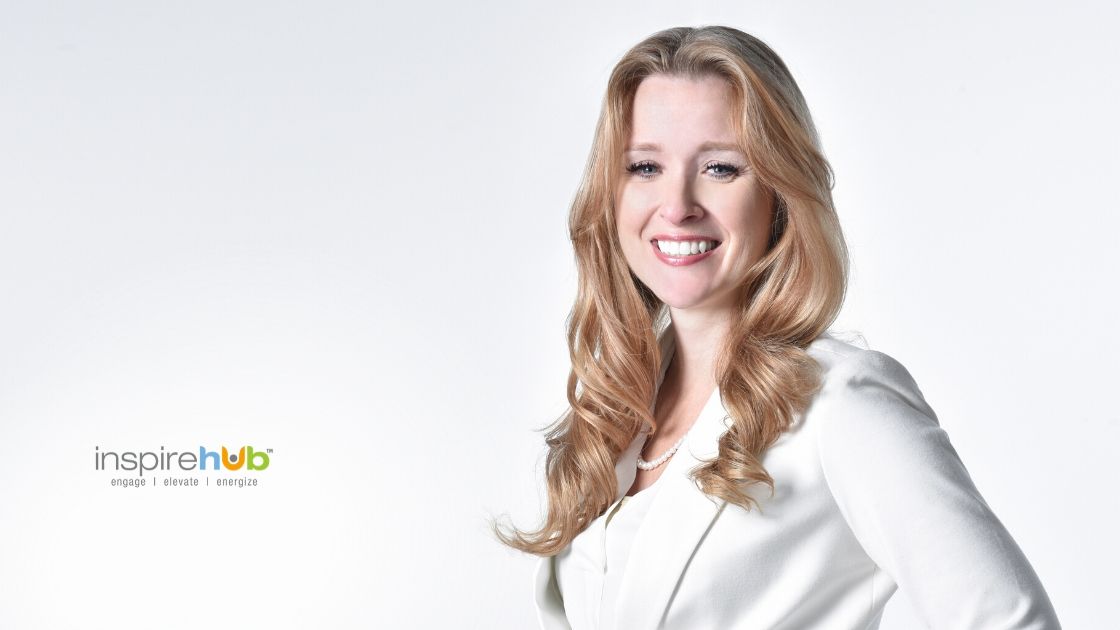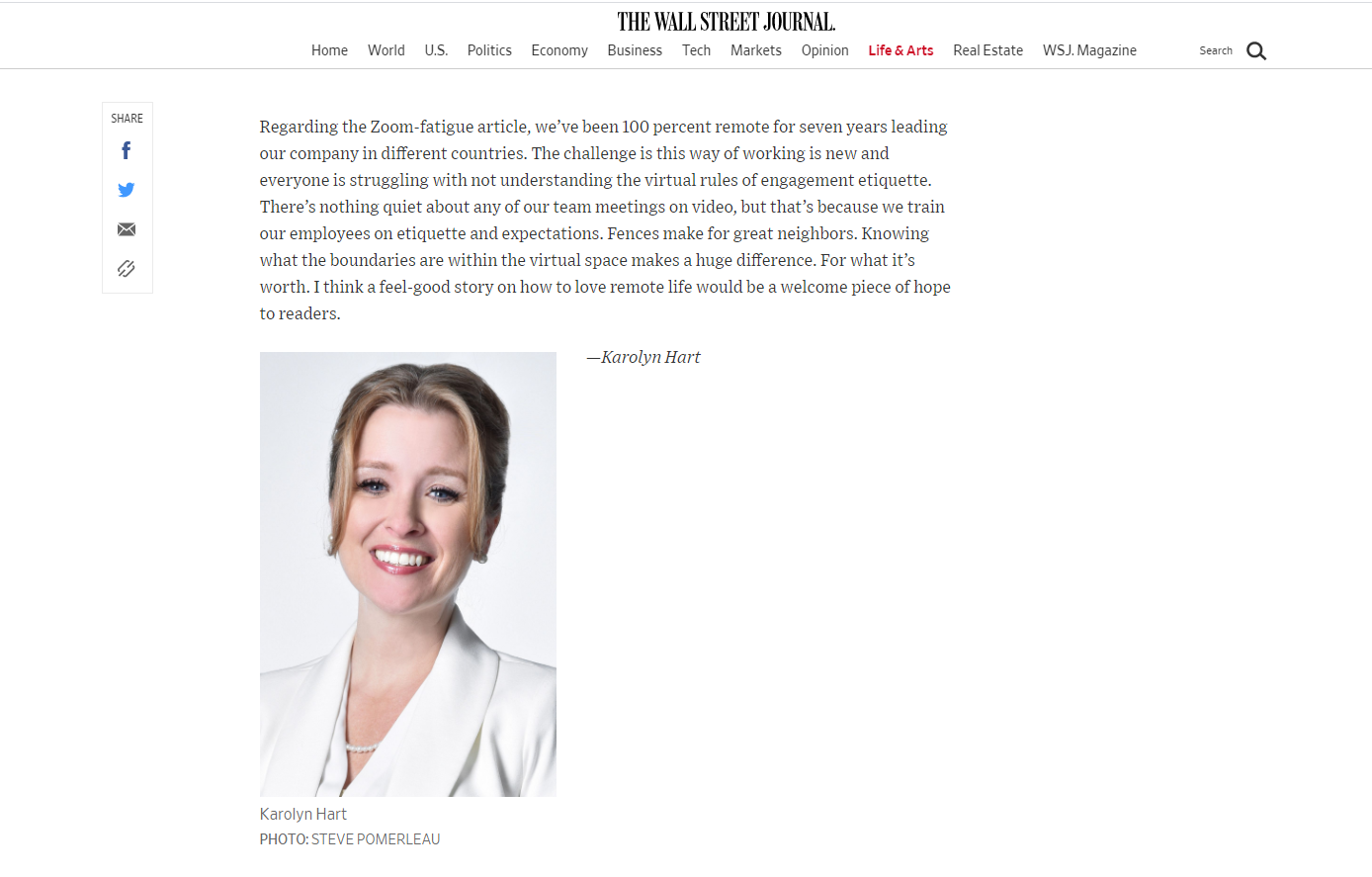
A few weeks ago, the Wall Street Journal’s Betsy Morris did a deep dive into the science behind what some of the many people now working from home are calling “Zoom fatigue.” She explored the ways that the interplay of technology, social science and biology create a challenging experience for people having to adapt to this new way of working overnight as pandemic lockdowns move offices from brick and mortar to the virtual.
We got lucky. At InspireHUB, we’ve been a 100% remote workplace for more than seven years now and have had time to acclimate to the nuances of meeting face-to-face through video. It’s worked so well for us as a team that we’ve seen the productivity boosts alongside significant quality-of-life improvements as we’ve grown.
One of the things that worked best for us? Having a set of guidelines to help us manage the way we connect. Our Founder, Karolyn Hart, shared a bit of this with WSJ's Brandon Sanchez, who shared her ideas with their readers here:
Regarding the Zoom-fatigue article, we’ve been 100 percent remote for seven years, leading our company in different countries. The challenge is this way of working is new, and everyone is struggling with not understanding the virtual rules of engagement etiquette. There’s nothing quiet about any of our team meetings on video, but that’s because we train our employees on etiquette and expectations. Fences make for great neighbors. Knowing what the boundaries are within the virtual space makes a huge difference. For what it’s worth. I think a feel-good story on how to love remote life would be a welcome piece of hope to readers.
If you’re curious about how we’ve created an internal etiquette to help us stay happily and productively engaged, and some of the other ways we’ve learned to make video meetings a successful foundation for the way we work and play together, Karolyn shared more on this in an article here:
Suddenly remote: 5 critical tips for companies struggling with the Coronavirus quarantine.
Video conferencing works because we made a point of weaving it into our company culture, not only productively, but playfully. We even have a “Mandatory Fun Officer” :) I shared a bit more about that and some of the other ways we’ve made our culture the cornerstone of everything we do, from how we engage with each other to the way we connect with allies and clients:
You can read Betsy Morris' original article in the Wall Street Journal here:
To read Brandon Sanchez' follow up article, visit here:
‘Zoom Fatigue’: Readers Weigh In on the Rise of Remote Meetings
Video conferencing is just one piece of a very complex puzzle people are grappling with as workplaces have become digital overnight. We made a commitment to share as many of our tools and resources as possible to help others as we all learn to adjust to this new way of being in our businesses and communities, helping small business with crisis management, business continuity plans and growth strategies. To make it easier, we created a guide to help small businesses navigate their own digital transformation to not only survive but grow. You can download it for free below.
Looking for more small business help?
.png)
The Ultimate Small Business Survival Guide is Here
We've been helping InspireHUB clients not just survive during this time but THRIVE! We collected all of our advice and made it available for FREE as our great big give-back during this difficult time. Included in this FREE Guide:
- Transformation Readiness Assessment
- Practical Marketing Help
- Proven Strategies to Pivot Your Company
As the Coronavirus has spread around the world, businesses are requiring employees to work from home and grappling with the practical implications of suddenly needing to manage a distributed workforce.
InspireHUB is a 100% remote company and has been managing an international staff of digital nomads for over seven years. As the creator of the IHUBApp Digital Experience Platform, we also have had agencies and clients use our platform to build employee hubs to help improve their connection and engagement.
From this unique vantage point, we decided to share the internal guidelines and tips that have helped us become high-performers and produce at the award-winning level with the hopes of you making the most of the situation.
It's one thing to make policies that put people first in company culture. It's another thing entirely to model them. But being part of a corporate social experiment designed to prove that putting the bottom line and people first are not competing ideals? Better buckle up!
Getting beyond lip-service often means a lot of falling down and getting things wrong before you find your groove. Our Founder, Karolyn Hart, jokes about our being "UnInspireHUB" while we fumbled through the transition from a more traditional workplace to the 100% remote -- and empowered -- workplace we have now. She's bent on disrupting some of the most toxic foundations of corporate culture, starting with ours.
Something funny happens when you treat people like capable adults. They tend to rise to the occasion, and so does your ROI.


.png?)
